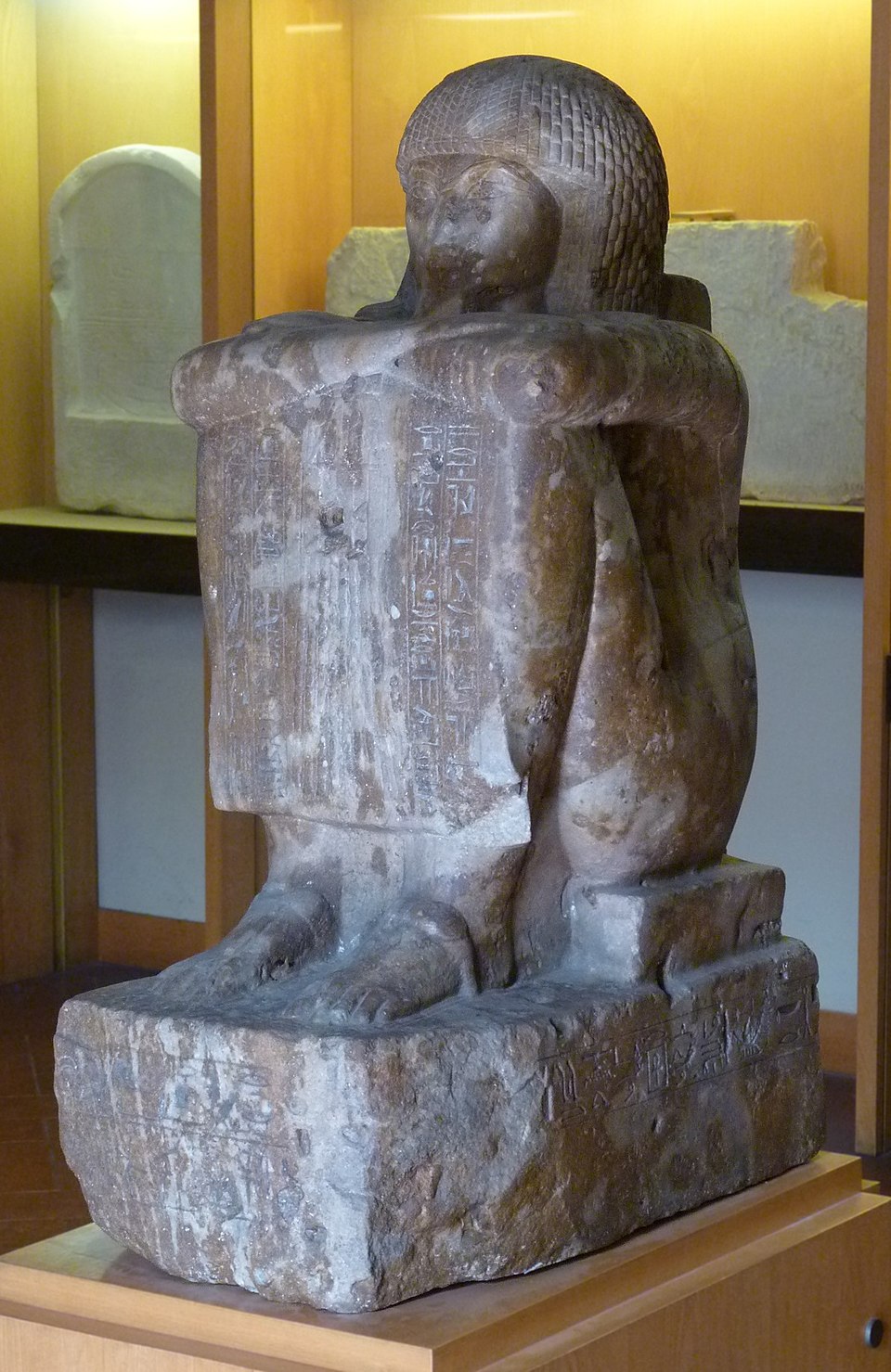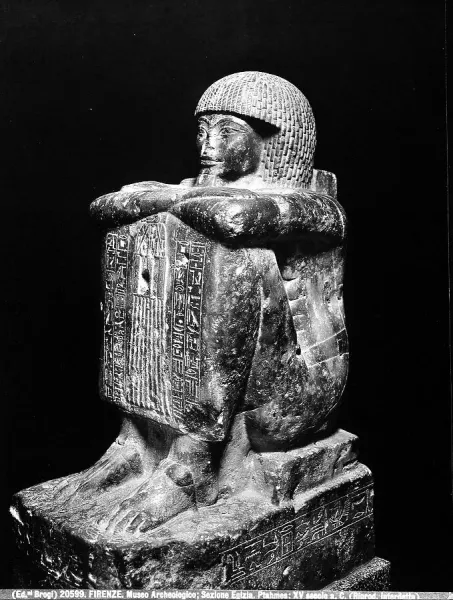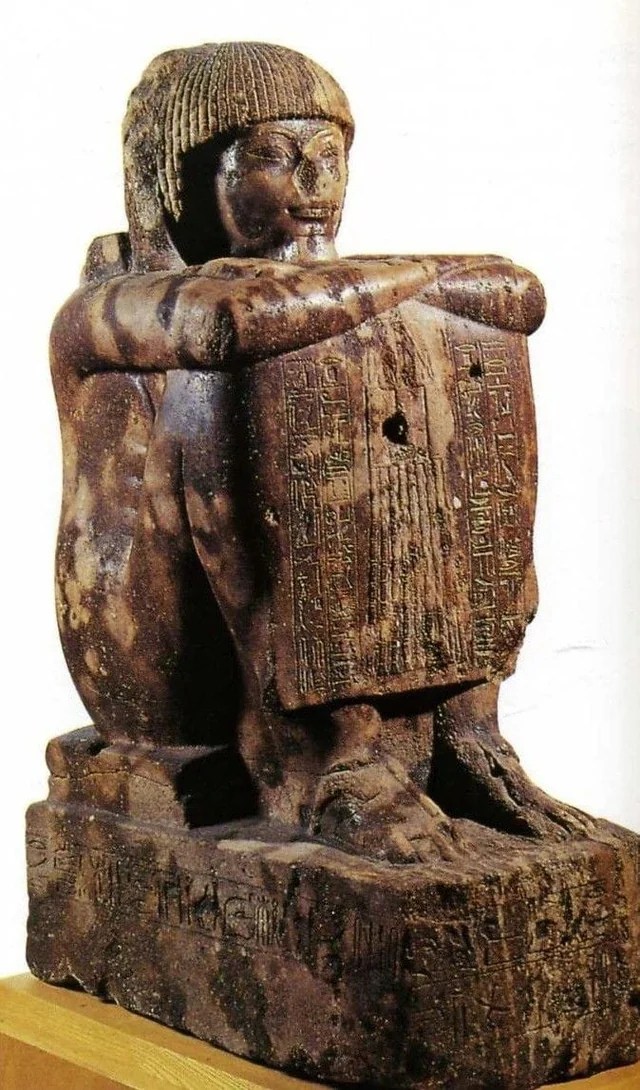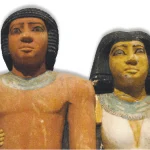Block statue of the High Priest of Ptah in Memphis

Block statue of the High Priest of Ptah in Memphis, Ptahmose, son of Menkheper.
Puddingstone (quartz conglomerate);
Reign of Amenhotep III, 18th dynasty, New Kingdom.

Ptah was one of the most important deities in ancient Egyptian religion, primarily worshipped in the city of Memphis. He was regarded as the god of creation, craftsmen, architects, and builders. According to Egyptian belief, Ptah created the world through thought and speech, bringing all things into existence by conceiving them in his heart and speaking their names aloud—a concept known as creation by intellectual command.

He was often depicted as a mummified man, with a tight-fitting skullcap, a long beard, and holding a scepter that combined the symbols of life (ankh), stability (djed), and power (was). Ptah was also closely associated with craftsmen and artisans, particularly in metalworking, sculpture, and architecture, highlighting his role as a patron of creative skill and technical mastery.

In later periods, he became linked with other major gods, including Sekhmet and Nefertem, forming the Memphite Triad. Revered as both a creator and protector, Ptah exemplified wisdom, skill, and the divine power behind the material and artistic world.











